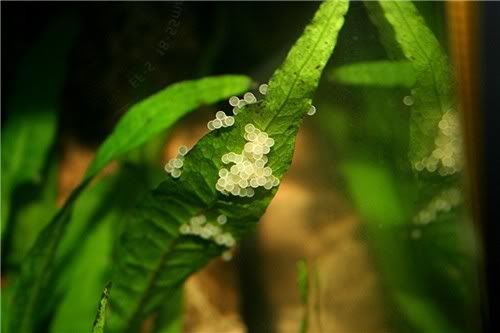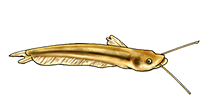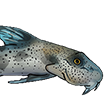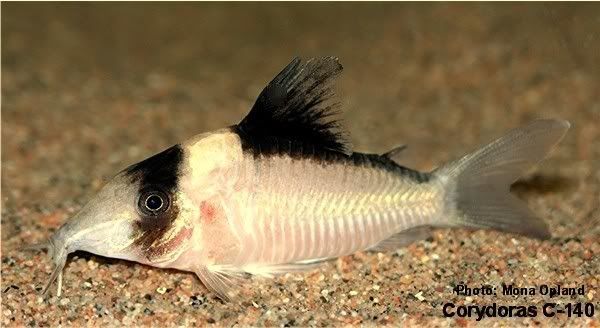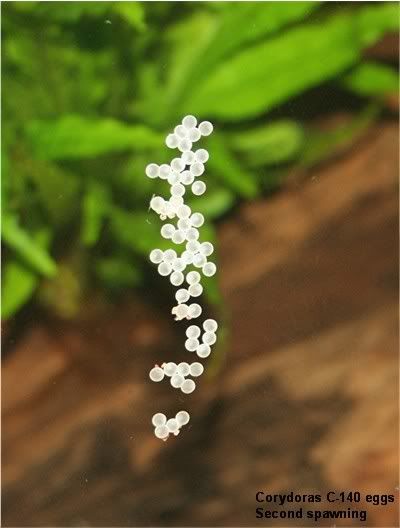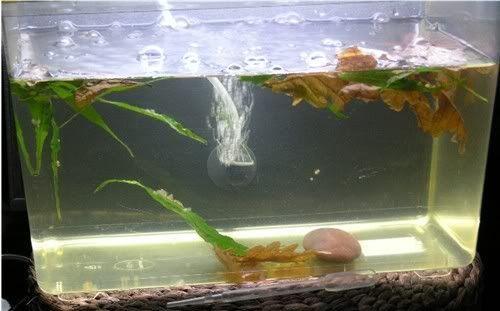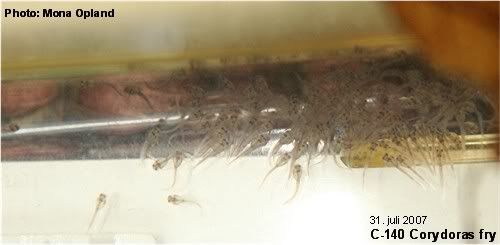The C140 group is spawning again today!

First time since last summer!

They started around 09.30 (norwegian time, 08.30 english time) this morning, and they're still spawning "as we speak"

And the female(s) sure carry a lot of eggs in each load, I can tell you that! At one point, she decided to place them on a spot where it was easy for me to see. She had previously filled one side of a plant leaf with eggs, and she obviously wanted to use the same plant leaf again, so she started to fill the other side of the same leaf as well. There was no eggs on that side right then, so when she finished up and left, I went over to count how many eggs she had deposited in one go. There was at about 20 eggs, maybe 22 ! In one go! That's a lot of eggs to carry around between the pelvic fins...
I can see there's only one or maybe two females (out of five) participating in the spawning, but all 3 males are in. They're absolutely nuts. I can't tell for sure if the female choose the same male every time or if she prefers to take whoever is closest at the time she's ready for a new T-position, but I can definitely say that not all females are in. Only one or two. The other females has either hidden under the wood. Or if they're out in the open, they bury their noses in the sand whenever a male tries to convince her to spawn, to make her nose unavailable for him when he tries to position himself in front of her. Smart!
Out of the 3 males, one of them has a noticeable change of colour. Maybe this is the leading male? The other two looks more or less the same as before, but this one has a kind of greenish-grey shine all over his body, and the black parts of his pattern has turned kind of pale. Especially his face, but also the back stripe.
The females have been looking quite heavy with eggs for some time, so I guess someone's feeling kind of reliefed tonight!
And lucky me.... just like the first three times they spawned, they don't seem to be interested in the eggs afterwards, not even the ones that's not involved in the spawning. They seem to leave the eggs alone (so far).
I'm going to be very busy this afternoon, collecting lots of eggs!
I wonder if I should spread the eggs to two different hatching containers, in order to minimize the risk of loosing all if something goes wrong...?
I'm tempted to photograph while they're busy spawning, but I think I will leave them alone - I don't want to disturb them and maybe cut them off.
